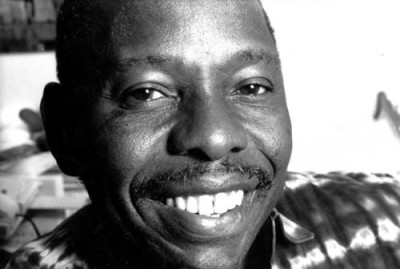Almost 20 years ago to this day, the Nigerian state unravelled in a very bad way. On November 10, 1995, Kenule Saro-Wiwa was killed through a kangaroo trial. I continue to be fascinated by the Saro-Wiwa phenomenon. According to him, a disaggregation of the Nigerian black box would reveal the Wazobia triad and many more. One of these many more, was the Ogoni people. The Ogoni, a group that was largely unknown, started to loom large in our collective consciousness. Saro-Wiwa’s activism was largely responsible for this.
His struggle was really something of an encounter between David and Goliath. This could be observed at two levels. There was Ken pitting the Ogoni against the Federal might. There was also Ken, pitting the Ogoni and himself, against one of the oil giants, Shell.
In that particular year, we were at a seminar in Port Harcourt. The theme of the seminar was, “Relations between oil companies and oil communities.” In the course of the seminar, there was a stormy face-off between Ken Saro-Wiwa, and a representative of Shell, who incidentally, was from Isoko, another oil producing area. Such was the bad chemistry which ensued between the two men that I had to intervene. In the glare of the audience, I told Saro-Wiwa about a certain Italian called Enrico Mattei who was done in by the multinational oil companies. Mattei, like Saro-Wiwa, decided to take on the oil companies. In view of the fact that his spirited efforts were beginning to destabilise these corporate bodies, the latter sued for a peace of sorts. They invited him to come and meet John F. Kennedy, the then American President. In the course of his flight, the plane crashed. Who did it? One will never know. But then, one writer commented that when Mattei died, there were no long faces in the headquarters offices of the various multinational oil companies. Something tells me that, on November 10, 1995, when Ken Saro-Wiwa was similarly killed by an irresponsible state, there were also no long faces in Shell and similar places.
But then, as history has repeatedly instructed us: You can kill a man, but you cannot kill his ideas. Somehow, the seeds of creative rebellion which Saro-Wiwa sowed, have germinated.
In response, the various governments have had to pay attention to the sensibilities and aspirations of the Niger Delta region. This can be seen in the increased allocation to the states in the Niger Delta region. Thus, apart from the normal statutory allocations to the Niger Delta, over and above these, there was also the 13 per cent derivation, which was given to the various Niger Delta states. Yet, and as we write, the region is impoverished. This means that, it is not enough to throw money at a problem. There are also interrelated issues of attitude and management. Thus, rather than live up to the clear-headed ideals of Saro-Wiwa, the various governors of the Niger Delta have gone on a spending spree. It is binge, which would even leave an Arab Sheik gasping. Indeed, at a point in time, the sick joke that was making the rounds was that, former Governor of Delta State, James Ibori, was in fact a black Arab Sheikh. But even then, since the exit of Ibori, the successive governors have conduced themselves in the same mindless way.
The immediate foregoing has been confirmed by a news item in BusinessDay newspaper, Monday, July 27. Among other things, it was reported that, “Niger Delta citizens short-change citizens, in petrol dollar siphongate,” and there are also riders like: “Not much to show after years of 13 per cent derivation, bogus budget headings mask corrupt practices.” Moreover, there are also sobering and sad details like the phantom Aviary fish farm in Isoko South of Delta State, whose cost was N56.5m. The report goes on to state that, when an NGO, the Niger Delta Citizens Budget Platform, visited the site of the project, it reported a farm that had no fishes and was desolate and enmeshed in a bush. There are also reports to the effect that residents of Nigerian oil regions are trapped in a vicious cycle of poverty, unemployment and environmental degradation as state governors in the areas fail to impact on most of the communities despite having huge budgets.
Again, there are searing revelations that the combined budget of the five states was equivalent to the 2014 budget of Ghana which spent 36 billion Cedis ($11.61 billion dollars) in that fiscal year
But at the moment, the bottom so to say, has dropped out of the bag. Oil prices have fallen from over $100 a barrel, to around $54. Meanwhile, the inhabitants of the area feeling abandoned have resorted to counter- cultural methods like siphoning oil from pipelines, and selling the same to illegal traders and refineries.
Thus, as we reflect on Saro-Wiwa’s demise 20 years after, the greatest tribute that a seemingly repentant ruling class can pay to his memory, is to ensure a linkage between oil and social justice.
PUNCH
END


Be the first to comment